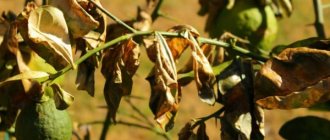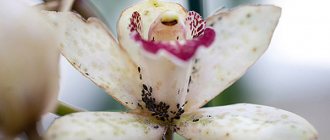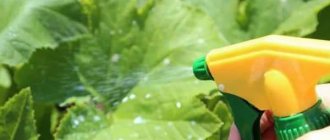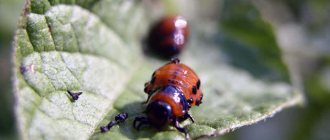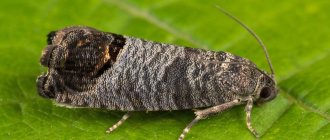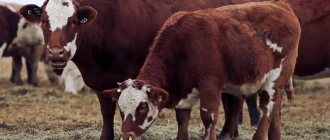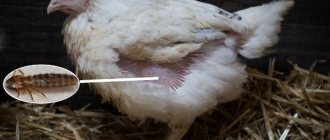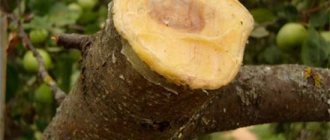General information
Dodder is a cunning parasite that camouflages its seeds, which increases the risk of planting it along with other plants sown in spring. Dodder seeds have high viability - they do not die, despite harsh weather conditions, and survive even if they enter the gastrointestinal tract of animals. This ensures dodder germination for up to 10 years or more.
In common parlance, dodder is called dodder or loach. There are more than 100 species in total. Dodder is an imported weed that originated in North America.
A climbing annual parasitic grass without green leaves or roots
Origin of a dangerous plant
The malicious weed migrated to us from equatorial Africa and tropical America. It belongs to the liana family. Usually such plants find a base, wrap around it and peacefully coexist with it. Unlike other bindweeds, the dodder finds its prey and feeds on its juice. If there is no such plant nearby, then it dies, since the weed cannot exist on its own. When a suitable support is found, it quickly takes root and adapts to any climatic conditions. There are two forms of bindweed, differing in the thickness of the stem - thick and thin.
Appearance
Dodder has no leaves. Its main component is the stem, which has a cord-like shape. Color varies from yellow to orange and red.
On the stem, dodder has pink, white or greenish flowers that form inflorescences. Subsequently, they form a fruit - a box with seeds inside, which have an uneven surface. The embryo has a spiral shape and lacks a root.
An interesting fact is that immature plant seeds have the fastest germination rate than mature ones. This ensures good germination of dodder for many years.
Varieties of dodder
Today, there are about 300 different species of this plant, differing in their preferences in choosing hosts, the structure and shape and color of flowers.
The most common and dangerous of them:
- Hop dodder has a purple or coffee-red thread-like stem up to 3 mm in diameter with spike-shaped inflorescences of pink buds. It parasitizes most often on shrubs and trees.
- Thyme dodder consists of a yellow or red cord-like stem, up to 1 mm in diameter. Globular bunches - flower stalks form pale pink buds. It can develop on the lower part of clover, alfalfa, vegetable crops, and many types of weeds.
- Flax dodder is an olive, non-branched stem, of medium size in diameter. The flowers are pale yellow. Prefers to parasitize flax, alfalfa, clover, some vegetables and weeds.
- Field dodder has thin, cord-like, branched stems of red or yellow color. Blooms with pinkish-white buds. Prefers to infect the upper and middle parts of tobacco, shag, clover, alfalfa, soybeans, legumes, vegetables and melons, and also weeds.
- Clover dodder has a thin, branched red thread-like stem. In the lower part of the host plant it forms a dense ball, and then spreads to other parts of the victim. It blooms with spherical inflorescences of white or pinkish buds. Prefers to eat clover, alfalfa, flax, potatoes, and beets.
- Alfalfa dodder consists of hair-like, smooth stems that are yellow, pinkish, or green. It blooms with snow-white flowers collected in spherical inflorescences. It is an abundant parasite on many herbaceous plants, especially alfalfa.
- European dodder grows as a medium-thick reddish stem with pale pink flowers. It affects many herbaceous plants, as well as legumes, vegetables, trees and shrubs.
- Japanese dodder has a branched, cord-like stem of a reddish color, 2 mm in diameter. Its flowers are yellow. Prefers to grow on shrubs and many herbaceous plants.
Plant danger
Why is dodder dangerous? This type of loach grows rapidly, covering entire areas of various crops. One seed of this weed is enough to infect 5-6 square meters of soil. Good stem turgor allows plant fragments to remain viable for several more days while continuing to parasitize.
Flora infected with dodder begins to quickly dry out and become moldy; Soon she loses all vital juices and dies. There is also a high danger for perennial plants - the dodder that parasitizes them leads to a decrease in their frost resistance and productivity.
Why is dodder dangerous for fauna? After eating a weed, an animal can be poisoned by the alkaloids contained in the plant. In addition, dodder is a carrier of some viral infections.
Why is dodder dangerous?
This photo was posted in the Flowers in my garden group on Facebook by Olga Gritsaenko
Dodder is a parasitic plant. Living at the expense of the “master”, she sucks the vital juices out of him, slows down his growth and does not allow him to develop normally. In perennial plants, winter hardiness decreases, this can lead to their death. What can we say about productivity? In some crops, its losses reach up to 95%. It is no coincidence that all types of dodder in Russia are classified as quarantine weeds.
Today, 165 countries in the world suffer from dodder alone. In total, the weed has over 270 species, with about 40 in Russia alone. This native of the tropical forests of Africa and America is extremely tenacious and prolific.
He, like the mythical hydra, can recover from a small part of himself remaining on the host plant. And if you consider that one unit of this weed produces up to 100 thousand seeds, then the threat is quite obvious.
Dodder is dangerous not only to flora, but also to fauna, because contains poisonous alkaloids. They cause serious poisoning in animals that eat dry weed along with hay.
In addition, dodder is a carrier of many viral diseases. Meadow grasses that are not cleared of weeds become moldy and dry poorly.
Medicinal properties
Despite the fact that dodder is a weed, when used correctly it has a number of healing properties. Various decoctions, tinctures, and even ointments for topical use are prepared from it.
Dodder has the following medicinal effects:
- analgesic;
- hemostatic;
- diuretic;
- laxative;
- anti-inflammatory;
- immunomodulatory;
- antiplatelet.
In folk Indian, Tibetan and Chinese medicine, the plant is used as a sexual potency stimulant, as well as a diuretic, astringent, sap, anti-inflammatory, anti-infective agent.
Thanks to its many beneficial properties, this plant fights pathologies such as alcoholism, cholestasis, viral diseases, hyperthermia , toothache, painful menstruation.
It is known that in combination with other representatives of the flora, it effectively fights cancer pathologies.
Dodder parasitic plant: types, description, control measures
Any weed can cause some damage in the garden.
But there is a class of weeds that is especially dangerous - parasitic plants. Dodder is one such pest that causes a lot of trouble. Such an undesirable neighborhood deprives vegetable crops of nutrition, which in turn affects their productivity and often leads to death. If you find such grass on your site, you should rush to take the necessary measures. Having considered the information from the article, gardeners will be able to find answers to questions about what harm dodder causes and how to deal with such a weed.
Fighting dodder
In order to protect your garden or vegetable garden from harmful plants, there are various control measures. Let's take a closer look at how you can get rid of dodder - a weed plant.
In the fight against dodder, it is necessary to prevent its seeds from ripening. Otherwise it will be more difficult to defeat her
Preventive measures
Prevention plays a huge role in weed control. One of the main precautions is pre-sowing seed selection - if dodder is detected, it is not advisable to collect seeds from this area for the next sowing.
The second method of prevention is to clean the soil, since it is the soil that contains the bulk of the weed seeds. To do this, the ground is plowed to a sufficient depth.
It is possible to clean the soil by stimulating the growth of dodder and then removing it. The emergence of the weed is provoked by abundant watering, after which, not finding food on the bare soil, it dies.
The most effective method of prevention is sowing oats or wheat immediately after destroying the weed sprouts - the dodder cannot parasitize on these crops.
Drugs
For many years they tried to destroy the dodder with sulfuric acid, copper sulfate, and kerosene - but such methods had no effect. Currently, the only drugs available to control this weed are herbicides.
Herbicide treatment
An area of bare soil is treated with ammonium nitrate and ammonium sulfate. Typically, ethers and ethylhexyl salts are added to this mixture. Herbicides effectively destroy young weeds, while adult dodder is most resistant to such treatment.
It is important to know that herbicides are more effective at destroying plants that have succumbed to moisture, so it is recommended to apply the treatment after rain or watering.
Dodder: parasitic plant - how to fight, photo
Author: Natalya February 01, 2021 Category: Garden plants
plant (lat. Cuscuta) is a genus of parasitic plants that are classified as quarantine weeds. Previously, there was a family of Dodder, represented only by this genus, but now the genus belongs to the tribe Dodder of the Convolvulaceae family. Scientists have described more than 200 species of dodder, which are very widespread. The dodder weed parasitizes fodder, melon and vegetable crops, also causing damage to potatoes, flax, jute, trees and shrubs. It disrupts the metabolism of plants, causing them to weaken, lag in growth and development, and often die.
Application
When prepared correctly, dodder has a healing effect on the body. Decoctions, tinctures, ointments and powders are made from the plant.
Decoctions
Decoctions of dodder are used to treat diseases of the skin, gastrointestinal tract, and painful menstruation.
- For skin diseases - grind 25 g of dry plant, pour 1 liter of hot water and keep in a water bath for a quarter of an hour. Let it brew for a while, then strain and drink 2 times a day, 100 ml.
- For painful periods, take 25 g of the dried plant, chop it, pour a liter of boiling water and simmer in a water bath for 15 minutes. Then infuse, strain and drink 15 ml 3 times a day.
- For diseases of the gastrointestinal tract - take 5 g of dry plant, pour 250 ml of boiled water and place in a water bath for 10 minutes. Then strain, cool and consume according to Art. spoon 3 times a day before eating.
A decoction of dodder is used for scanty and painful menstruation, colds and stomach diseases, liver diseases, headaches and toothaches.
Infusion
To prepare an infusion of dodder, you need to take 15 g of fresh plant and add 250 ml of hot water. Let the drink brew for 60-90 minutes, then cool, strain and consume 2 tbsp. spoon 3 times a day before meals. The infusion is used to treat bronchitis and pneumonia.
Alcohol tincture
To prepare the tincture, you need to take 50 g of dry crushed seeds and stems and pour 0.5 liters of 70% alcohol. Then let it brew for a week and a half in a tightly closed dark glass container. The tincture must be shaken before use.
The tincture is used in the treatment of ischemic heart disease, gallbladder pathologies, and to combat headaches and toothaches.
Ointment
The ointment is prepared as follows: chop the fresh plant and mix with butter in equal proportions. Apply the product topically 2 times a day for skin rashes and skin cancer.
Powder
To prepare the powder, you need to mix dry dodder, Chinese wolfberry, raspberries, lemongrass and plantain in a ratio of 8:8:4:1:1. Use the powder one teaspoon 3 times a day with water as a tonic.
Dry dodder
How to get rid of dodder
It is extremely difficult to defeat dodder. If she appears on the site, you need to be prepared for a long and grueling struggle. There are several ways to achieve a positive result in eliminating the parasite. Let's take a closer look at the more effective ones.
Mechanical method
The mechanical method includes the following activities:
- Bury the seeds deep into the ground to prevent them from germinating; the depth should be at least 20 cm.
- Abundant watering stimulates seed germination and destroys them. If there are no nearby plants, the dodder itself dies after 7-10 days.
- Dodder-resistant plants, such as grain crops, are planted on cleaned soil.
Agrotechnical method of combating dodder
The lack of roots of the weed is its main weakness. Therefore, in order to use it, it is extremely important to notice the “enemy” in time. As soon as it germinates, it must be removed immediately. This can be done before the parasite has entangled the entire plant. Moreover, be sure to carefully examine the “owner” so that not even a small part of the dodder stem remains on it or near it. Otherwise, it will survive and take over the plant again.
If the weed has already developed sufficiently, then you need to pull out the crop affected by it and burn it.
In the fight against dodder, it is necessary to prevent its seeds from ripening. Otherwise, it will be more difficult to defeat her.
If the seeds are sown, you need to clear the ground of them. This can be done in several ways. Since dodder has no roots, its seeds can germinate only in the surface layer of soil. To prevent this from happening, they need to be buried. Deep digging of at least 30 cm with obligatory shoveling of the soil will prevent the weed seeds from sprouting.
Another effective way is frequent watering. It should be applied in the spring a few weeks before planting crops or in the fall after harvesting. Watering allows dodder seeds to germinate faster. On unsown land, a young weed is easy to notice and remove. This can be done either manually or by harrowing. In addition, if the parasite does not find someone to attach itself to, then in a week and a half it will die itself. In the fall it will die from frost.
Double harrowing before and after germination destroys up to 85% of dodder seedlings.
It is advisable not to sow a weed-infested area for a year, but to leave it as black fallow. To prevent re-infection, crops that cannot be overcome by the parasite should be planted in this area over the next 5-8 years. These include: oats, wheat, sunflower, cucumber, watermelon, melon, zucchini, pumpkin.
Folk methods of struggle
Traditional methods of combating plant parasites are not very effective, so it is better not to waste time, but to take radical measures.
Herbicide treatment
In addition to manual destruction and crop rotation, in particularly difficult cases, herbicides are used to combat dodder. But it should be remembered that they can also harm cultivated plants. Therefore, it is preferable to use them in the spring, a few weeks before planting the main crops or after harvesting them.
The effectiveness of herbicides depends on the age of the dodder. Young weeds die faster than flowering ones.
Herbicides are most effective when the dodder stems are heavily moistened: after rain or intensive watering.
There are not many herbicides that destroy dodder. Roundup performed well. It can be used for spraying vegetative weeds in the fall in areas intended for sowing different crops, and in the spring 2-5 days before potato emergence.
To achieve a positive effect in the fight against dodder, you need to combine agricultural methods and the use of herbicides. Don't forget about prevention. Destroy weed plantings on the roadsides next to the garden. For fertilizer, use only rotted manure, because fresh ones may contain viable seeds. Do not take soil for seedlings where dodder has been spotted.
Contraindications and side effects
It is not recommended to use dodder as a remedy in the following cases:
- during pregnancy and lactation;
- in childhood (up to 12 years);
- with increased allergic mood;
- in case of individual intolerance to plant components.
Side effects include headaches, dizziness, nausea and vomiting. To prevent the development of undesirable effects, the plant is recommended to be used in accordance with the recommendations and dosage.
Preventing grass overgrowth
Dodder spreads by seeds through water, animals and wind. Preventive measures play an important role in the fight against the plant:
- Clean the seeds of cultivated plants from dodder.
- The crops are tested.
- A phytopathological examination is performed.
- Carrying out quarantine measures.
State standards prohibit sowing with seeds contaminated with a parasitic plant. The main source of infection is the soil, so for sowing it is necessary to select unaffected areas or clean them. To do this, plows are used to plant dodder seeds in the field to a great depth or stimulate their germination, subsequently destroying the seedlings. Stimulate germination with provocative spring or autumn watering.
With the sowing of clover or alfalfa, which are often affected by dodder, the weed spreads to other crops that follow them in the crop rotation. To prevent this from happening, crops affected by dodder are excluded from crop rotation for 5-6 years.
Procurement of raw materials
To preserve the healing properties of the plant, you must follow the recommendations for its collection:
- dodder is collected away from industrial enterprises and highways;
- the entire part of the weed is collected for medicinal purposes;
- the stem of the plant is harvested in June-July;
- dodder seeds are collected in autumn;
- the root is collected before the dodder begins to parasitize.
It is necessary to dry parts of the plant in a ventilated area, avoiding direct sunlight and moisture. It is recommended to store in paper bags for no more than 1 year.
The grass is harvested during flowering in June-July, the seeds are harvested after the end of the growing season, usually in autumn
X
Plants are semi-parasites
These representatives of the fauna are endowed with green leaves and have not lost their ability to photosynthesize. They use the host as a source of water and minerals. Most often, they are unpretentious in choosing a substrate and settle on any woody and herbaceous fellows.
Ivan da Marya
Its botanical name is Maryannik oak grove, belonging to the Maryannikov genus, the Norichnikov family. This modest plant with yellow-purple flowers is not a parasitic plant, but a semi-parasite. It has a frail root with a powerful, developed network of strong suckers. The flower survives by parasitizing on the roots of trees and shrubs (willow, spruce, alder, hazel), and meadow grasses (clover, lungwort, shepherd's purse). Its suckers dig into the root system of the donor, extracting water, chemical elements, and salts.
Ivan da Marya
Florists know other semi-parasites from this family - eyebright, rattle, and mystic. They take root on meadow grasses, reducing the height and density of the grass stand and causing problems in the agricultural sector. The meadows of Europe are often terrorized by Tozzia, whose life cycle passes from complete parasitism to semi-parasitism. Its embryos, when in contact with the root of an autotrophic host plant, dig into it with powerful haustoria. When the rhizome has collected enough nutrients, a shoot with leaves and flowers appears from it, leading a semi-parasitic lifestyle.
mistletoe
The most famous semi-parasite plant that lives on the crown of various park, coniferous, and fruit trees. It has a characteristic spherical shape with a diameter of up to 1 m, small green leaves and small berries with sticky contents. Features of parasitism:
- decorative evergreen mistletoe balls cause irreparable harm to the owner, causing drying out of the crown, a decrease in yield and the death of the substrate in certain cases;
- lives on the trunks and branches of the substrate plant, introducing flexible rhizoid suckers into its wood;
- its leaves retain the ability to photosynthesize, and it draws water and minerals from the host.
mistletoe
Interesting!
Mistletoe prefers trees with soft wood - willow, birch, alder, poplar, pear, apple tree. In folk medicine it is used to treat gynecological, cardiovascular, and genitourinary problems.
Dodder*
The November day began routinely. The old woman creaked her key disgustingly, closed the door locks and quickly went down into the yard. Her constant companion was waiting for her below - a tall man in a wide coat. Leaning on her bent elbow, she sighed with relief. The old woman lived alone in a tiny cell-apartment, and strong muscles under the drapery fabric served as a tried and tested barrier in the bitter swamp of her lonely century. They walked slowly towards the Pikalov Bridge. The sparsely populated route, dominated by cold cyclones, was familiar to the smallest detail. After standing by the water, crossing the Kryukov Canal, we headed to the Naval Cathedral. Here they separated. The old woman prayed for a long time at the ancient icons, and her companion sat motionless on a bench in the Nikolsky Garden.
A little later, sitting next to the man, she took out a metal thermos with hot mulled wine. Warmed up with alcohol, she laughed animatedly. Cheerful excitement appeared in the eyes, wrinkles were erased, and the cheeks turned slightly pink. Turning red, she looked younger. Now it was clear that the little lady, sick and withered like dead leaves, was a little over forty. She began a conversation, or rather a lengthy speech. Covered with the hem of his coat, her gentleman remained silent - he did not intervene in the conversation with either a word or a gesture. His silence was convenient for her, giving her the opportunity to plunge headlong into an incoherent, lively monologue.
They sat like that for hours.
A random passerby, a tourist and a pilgrim were afraid of the old woman. Forgotten by everyone in the dank garden on a cold bench, she frantically waved her arms, telling the deceased chimera the story of her life. The shaggy tow was ruffled by the damp wind. She was straightening her hair and suddenly, remembering something, she fed the sparrows, cowardly and lethargic in the November darkness.
The parishioners of St. Nicholas Church have become accustomed to the terrible picture.
“A sick sufferer,” they pitied her.
In the evening the friends left. A dead man is arm in arm with a gray-haired and unhappy old woman. Her name was Olga.
***
The news of the sudden death of his wife found Anton in Berlin. The pain, splashing with excruciating heat in the chest, was deafening. For him, the death of his wife was not a deliverance, as often happens in long and worn-out marriages. The heart did not want to come to terms with the misfortune, but the accommodating quick mind with greedy readiness accepted the inevitable.
They lived separately, and their love was a strange joy. Especially for him. From the very beginning, the relationship developed raggedly and painfully, interspersed with wild quarrels. But an uncomfortable and ambiguous feeling sang with a high and sonorous string, filling routine everyday life with painfully sweet happiness.
“A world without rain and fog becomes fresh,” thought Anton.
For three years now the family had been in a welcome but bitter separation. Staying together for a long time seemed like a difficult experience, but they couldn’t part! The status of absentee but faithful spouses more or less suited both. Constantly shuttling between St. Petersburg and Berlin, the wife stayed for several days. Enthusiastically bathing in the feverish waves of frantic passion, they eagerly awaited the moment of farewell, and having waited, they were drawn to each other again. Bonded by a fierce mutual attraction, they hated burdensome carnal love, but did not know how to do without it.
Anfisa was from a tiny ancient town located on the right bank of the Klyazma. Small in stature, thin, with a completely ordinary face, she attracted someone with a certain inner brokenness and irregularity. That which is neither possible to grasp, nor to recognize, nor to understand, but which was guessed for sure. Wearing high heels, she looked like a modest wildflower swaying on a thin stem. “A figurine made of fragile white chalk,” came to mind. However, the physically weak, pliable-soft girl concealed within herself a strong and manly rude creature. Obvious duality and hidden conflict strangely bewitched Anton.
They didn’t like her at work, and lower-ranking staff were openly afraid of her. The movers of the alcohol storage facility entrusted to Anfisa were frightened by the bestial roar of the owner and were afraid of falling under the hot “tender” hand. The miniature boss in colorful rubber boots instilled shameful timidity in the workers. The unflattering nickname “bitch in boots” that stuck to Anfisa unmistakably captured the prominent feature of her complex character, without in the least offending the outwardly reserved and touching girl.
The owners of the business, which with her appearance became respectable and “grown up,” appreciated Anfisa’s iron grip. Non-standard management techniques brought their results: impeccable order reigned in the warehouse.
- How do you manage to keep this pack in your hands? – the boss was sincerely surprised. - That's news! Finally, flights are no longer a breeding ground for drunken sloths.
“Both wine and vodka are openly on the tables,” Anfisa chuckled sarcastically, showing her impeccable wet teeth. – Free will for those who want to sip a glass! If you want, go and help yourself! It is not prohibited. I deliberately hire fewer movers than necessary. I give them good bonuses and fill them with work. If I see you drunk even once, I fire you without warning. They hold on to their place tightly. They scold me and vilify me, but they are careful not to drink!
The boss looked at her and marveled: “She’s ugly! And skinny! But it’s impossible to take your eyes off!” After their first honeymoon trip together, Anton decided to get a divorce: his wife’s sudden rudeness infuriated him. About two weeks later, bored, I called. Having resignedly accepted her runaway husband and pretended that nothing had happened, Anfisa for a month was an example of an obedient wife. Vulnerability and tenderness seemed to be innate, and not artificial, properties of her nature. Then she yelled again. She shouted so boorishly only at the presumptuous loaders. From surprise, Anton could not utter a word.
"That's not her! It's someone else! - flashed through my head. His hands were shaking. “We have to run away from the shape-shifting witch.”
They began to live in different houses, but the strange marriage only became stronger. Guest relations suited both of them. And quarrels became rare. However, during close contact, Anton’s tact and gentleness irritated her. Unable to restrain herself, Anfisa rushed at her husband:
- Velcro partners are robbing you! An unnecessary burden! Relics! Addition to problems! Empty greetings from past times! A blind person will not see selfishness in their actions!
The companions really did not stand on ceremony - they abused their husband’s excessive scrupulousness, often laughing at his “simplicity”. In their circle, this was considered loyalty to the miscalculations of friends and the usual sensitivity to the failures of others. Despite everything, Anton succeeded in business: his reputation as a conscientious person was a guarantee of successful transactions.
In the post-crisis period of 1999, Anton emigrated to Germany. The wife remained in Russia: in Gorokhovets, in a communal apartment where Anfisa spent her childhood years, her decrepit mother lived out her life. And the wife did not dare to leave the old woman.
***
In a telephone conversation, a close friend and partner hinted at an inheritance and something else. Anton waved it off: this little thing is indifferent to him! Throwing my underwear into my suitcase, I set off. Say goodbye to your wife! And wash your grief with the rains of Peter’s capital. Once in my native St. Petersburg, I noticed with fresh eyes: the Five Glasses terminal* had become dilapidated and seemed to have become smaller. Suddenly I became sad:
“Good friend of old Schönefeld!”
Anton adored Schönefeld, a small but cozy air terminal in East Berlin built under Honecker. It was from there that, according to a long-standing tradition, Aeroflot planes decorated with hammers and sickles flew to Pulkovo.
From the taxi windows, Peter made a painful impression. Immersed in the cold November, as if in a damp cave, the city floated by in a row of houses deprived of illumination.
“It looks like a crypt,” flashed through my head, “or like a stone skeleton, eaten away by a rabid rat.” Anton recently re-read Green*.
The taxi rushed along the broken avenues, heading to Avtovo. Anfisa lived next to the metro in the “House for the Rich,” as the modest ten-story panel building was nicknamed by the inhabitants of the miserable gray Khrushchev-era apartment buildings that surrounded the cheerful yellow new building in a tight ring.
“The paint hasn’t faded yet,” the “rich people” sighed sadly. “It will get worn out, and the house will inevitably dissolve and absorb the shabbyness and wear and tear of the factory area.”
In a small two-room apartment with an obligatory view of the municipal garbage dump, the stunned Anton was revealed the details of his wife’s death. The same “something else” that his “friend” was hinting at. He couldn’t believe his ears, but he had to be convinced of the obvious: black and white police photographs were more eloquent than words. Anfisa was killed by some scoundrels in Gorokhovets for unclear reasons. The tragedy occurred in an old merchant's house, in the room of her parents.
“The body was discovered by a mother returning from a pilgrimage,” they explained to him. “Why she felt the urge to visit the distant left-bank monastery on the very day of her daughter’s arrival is a mystery!” Another mystery is added to this: the walls of the room were torn apart with a crowbar or a sledgehammer with a rock chisel. What were they looking for there? For what? Unclear! The inside of the house was rebuilt many times. There could be no hiding places or treasures there. They were unable to find the murderers in hot pursuit.
— Are the neighbors hiding in the cracks out of fear? Have you heard anything? – Anton was perplexed.
- The house is in disrepair. He is being resettled. There are only two residents left: Anfisa’s mother and a deaf, crazy old man. You can't get anything out of him. Based on the nature of the wounds, the forensic scientist suggested that the murder weapon could have been a geological hammer with a long handle or a pick. The first thing the detective did was visit the archaeologists. They are excavating in the center of Gorokhovets. But when they showed him the equipment: diamond-shaped spatulas and ordinary household brushes with coarse bristles, they laughed at him: “They crush cobblestones with a pick, but our work is delicate!” Anton was advised to immediately go to Gorokhovets and speed up the matter:
“If you don’t put pressure on the investigator from the prosecutor’s office, the movement will be slow.” And then, according to an unspoken tradition, they will blame the murder on drug-addicted vagabonds.
Depressed and crushed by the bad news, Anton decided to “unwind” the melancholy - drink a glass or two in the cafe across the street and walk through the alluringly welcoming, openly drunken places. Take a deep breath of raw urban nostalgia.
The gloomy Stachek Avenue immediately immersed him in an atmosphere thoroughly saturated with the spirit of the dense Middle Ages.
The appearance of those we met saddened us immensely. The complete hopelessness of a hungry, joyless life left an indelible imprint on the appearance of people. The faces of passers-by were covered with heavy cast-iron shutters, well-made on the anvil of hopelessness and deep poverty. The prickly, hard looks reflected the gray colors of a chronically ill city.
“Eyes like the sea,” he thought, looking at the townspeople, “take on the colors of the many-faced sky looking into them. Warm southern waters bloom blue and cheerful. The cold, icy shallows of the Neva Bay are filled with lead and fog.”
***
The evening of the next day he was shaking in a creaky reserved seat carriage. The archaic monster, produced by the Kalininsky VSZ * in the distant 60s, slowly took Anton to the no less ancient city of Murom. The decision to lull the blues by plunging headlong into a dense crowd of people turned out to be a frivolous undertaking: the clumsy and shy romance of Russian railways openly gave way to the crude naturalism that devoured it. The human muscle-bone mass snored and ate. “Travel in a time machine to the underworld!” — no other comparison came to mind. The windows did not open; It was hot in the carriage and there was an intoxicating stench from all sorts of food: sausages, fatty chickens, wine, cigarettes. The toilet added aroma. The torn linoleum on the floor was picturesquely held in place by numerous technical staples. The conductor was selling counterfeit alcohol. Someone somewhere was swearing and fighting. On long-distance trains, all this was regarded as a generally accepted ethical norm. An outside observer, taking a closer look at the untidy filling of the composition, would certainly add: “And aesthetic!”
There was no need to take a nap: they stopped drinking, chewing, and swearing long after midnight.
However, it wasn't all that bad. “A separate sleeping berth is a great blessing!” - he reassured himself. On trains across Europe, he had to spend the entire trip stuck in the corridor among DB* passengers sitting and lying on piles of belongings: tickets for second-class carriages were sold without taking into account seats.
The stop in Murom was at half past five in the morning. His shoulders brushing against dangling bags and smelly feet in and without socks sticking out in the narrow passage, he stepped down onto the platform. The pre-revolutionary Murom station, symbolizing three heroes: Ilya Muromets, Dobrynya Nikitich and Alyosha Popovich, was neglected, but still beautiful. Trembling with chills, he began to look around in search of the taxi he had ordered back in St. Petersburg. The area seemed to have died out: no cars, no people, no lights. At least give a shout. Freezing, I went to the station buffet to drink coffee. There he was discovered by the driver - a man of about forty with a standard car driver’s figure, unathletic, stooped, but wiry. Having apologized, he took a closer look at Anton: the polished, although rumpled, newcomer from the capital seemed like a foreign object, a little grotesque in the deep Russian regions.
In the car, lulled by a simple song from the repertoire of Russian chanson, Anton dozed off. The taxi driver, singing along, taxied along the deserted road:
- Go to Magadan! The harsh land, the mighty Bor, the pine forest, will heal you from bitter spiritual wounds! With an affectionate bear in the den, chat about God. There is no better teacher than a furry four-legged one! You'll swim in the river and drink tea from a huge delicious mug at sunset. In a hot bathhouse on the floors, lie down and in bed you will have a very good rest.
We arrived in Gorokhovets at the beginning of ten. It was just getting light. Anton asked the driver to take him straight to the prosecutor’s office: he didn’t want to procrastinate with business, lingering in a boring and poor “bakery,” as he privately called the town.
As expected, the investigator was not in the government building on Lenin Street. To pass the time, Anton decided to explore the corner of the country where his wife lived and died. They climbed Puzhalova Mountain to the guardian of the city - the St. Nicholas Monastery.
The Trinity Cathedral - built during the regency of Princess Sophia * the dominant feature of the monastery - resounded a golden chime over the houses floating in the morning haze. He was echoed by the frequent blows of the evangelists* of numerous temples. Across the river one could see the domes of Znamensky, and a little closer - the white stone buildings of the Sretensky Monastery. The cheerful morning call filled the heavy heart with an inexplicable and joyful light.
“The bells are ringing,” said the approaching priest, “they are bringing the Good News to the people.”
Anton really liked the “Divine” tautology*.
— How many churches are there in the city?
— Gorokhovets is the former patrimony of Tsar Alexei Mikhailovich. He granted special privileges to the local merchants. Most of them were considered rich! And each with a special ambition. And he wanted to build a chapel and a mansion. That’s why there are so many temples of God, and the painted towers are crowded together! Gorokhovets is called the capital of the stone chambers of Russia in guidebooks!
Anton recalled that Anfisa also lived in a beautiful merchant’s house - the way it was originally built! - turned, however, by the seventeenth year into an unsettled, dirty barracks.
From the observation deck located right next to the monastery, the entire city was clearly visible. Further, on the left bank of the Klyazma lay a frighteningly impenetrable black forest, stretching into distant distances like a thick, endless carpet.
“That’s right!” – Anton was delighted: the “outback”, as if by magic, turned into a white swan, and the boredom of the road turned into elation.
However, the driver in a hurry, indifferent to his usual prospects, at the moment upset the prayerfully pure delight, inappropriately reminding him that the time had come to return.
The investigator, who introduced himself as Pyotr Vasilyevich, a thin, nondescript man in a shabby dark suit, rubbed his small palms.
- The beast ran towards the catcher! Thank God,” he crossed himself earnestly, “you won’t have to deal with the paperwork and contact the St. Petersburg prosecutor’s office.”
- Why go to the prosecutor's office? And definitely St. Petersburg?
— In order to conduct interrogation on a separate assignment. You still have your residence permit in St. Petersburg.
- Interrogation?!
— As part of a criminal case, I am obliged to interrogate you.
- Do you think I'm involved in the murder?
- Well, what are you doing! The interrogation is nothing more than a routine procedure,” Pyotr Vasilyevich’s voice sounded confidential and deliberately soft. — Fortunately, the criminals have already been found. We're about to stop them!
- And who are they?! And where?
- Two fools and a scumbag from Gus-Khrustalny. The most criminal city in the region. Empty-headed, stupid treasure hunters! - He frowned contemptuously. “Someone gave them the idea.”
Changing his tone, he began to sing in a melodious and velvety silk:
“Unfortunately, fate destined for your wife to end up at her mother’s house that day. They came upon her by accident and killed her out of fear.
“He sounds nasally like a parish priest,” Anton noted.
The investigator, turning gloomy and serious, switched to almost protocol language:
“The investigative team worked very skillfully. The investigator,” he modestly lowered his eyes, “the detectives, the district police officer, the experts - all professionals of the highest level!
Anton chuckled to himself: “He should work in the theater.” Distracted, he did not notice the piercing, quick glance that slid through the door. Familiar stooped shoulders flashed through the opening.
Having signed, without reading, a couple of formal papers filled out by Pyotr Vasilyevich, he went to the city.
It got dark. The cathedrals fell alarmingly silent. Crows sat on the bare tops of frozen trees. Their hoarse cries, harbingers of troubles, drove out the divine voice from the heart - a crystal scattering of dawn ringing.
***
In 1991, a young graduate of the Polytechnic Institute got a job as an assistant in a German-Russian joint venture*. Essentially, an errand girl. She did not find any other options on the labor market that gave hope of parting with the dire need that weighed on her. The path of a prostitute, who had a diploma from a prestigious university, or the risky, slippery business of a stall trader did not appeal to her. The far-sighted girl understood long ago: great goals are achieved through a long, unhurried effort of will and only at the decisive moment - with cold, cruel pressure. Some of her classmates chose other paths and were temporarily lucky in their search for precarious happiness. The preference for ambiguous paths in life brought its results. When they met, they showed off, and the modest Olga kept aloof. The friends did not feel sorry for themselves and did not even know that somewhere, outside the cosmos of terrible Russian principles, there was a word such as “pity.” The idea that the world owed them anything seemed absurd. We had to fight for a hearty piece ourselves and all the time. The extreme callousness of the universe gave rise to a simple moral:
“Everyone for himself - this is the law that rules the world from time immemorial; But the devil doesn’t yawn!”*
Outwardly washed with the moisture of smiles and ringing laughter, Olga suffered from a secret longing for success and money. Seared by a burning desire to live, she covered herself with the finest pattern, woven from icy cold snowflakes, deaf to those looking from the outside and transparent to those who could break through inside. She herself imagined herself as a chrysalis, imprisoned in a shell of bad circumstances, from which a fiery, bright butterfly would quickly burst into the light, crushing the hated chitinous crypt.
Very soon, one of the owners of the joint venture deigned to pay attention to the efficient, intelligent girl - he singled out Olga from the mass of empty plankton drifting along the office waves. Noting his diligence and efficiency, seasoned with a “sounding” diploma, he began to bring her closer. A motivated, non-conflict girl, who, if necessary, meekly stayed until late and did not demand any special benefits for herself, charmed him. She never refused anything. At the same time, Olga’s reputation remained blameless: the confidentially close proximity to the company’s employees, who were accustomed to affairs, did not seem excessive.
At the suggestion of her patron, who needed intelligent and personally devoted lawyers, Olga entered the law faculty of Univer. Eye-nosed and funny, she fluttered like a bird through the halls and classrooms, delving into the details of practical matters. No one knew how difficult the external ease of her existence was, but, having gone through the despair of the terrible work, she succeeded: in the post-crisis year, the hitherto insignificant employee stood on a par with the hired management.
However, the invaluable time of the cave decade threatened to disappear into thin air. And Olga hurried with the last push. A prudent, intelligent lawyer, who knew the intricacies of the case in detail, was afraid of remaining a powerless toy - a dependent doll in the hands of a ruler. She urgently needed a hefty, tasty jackpot.
The lawyer understood: the inflated lover was just a small walking coin. “Weak exchange pawn,” she nicknamed her patron. The silent and complete owner of the company was a certain Anton, who lived in Berlin. A brilliant strategist, but an insignificant psychologist. The invisible moral core in working with a partner often let him down and made him very vulnerable. His wife constantly reproached him for his gentle nature. And Olga saw the light: that decisive vengeful moment had come! She thought about him for many years! She could not afford not to be stung extremely cruelly. Anfisa, Anton's wife, was in the way - an arrogant, grasping woman with the appearance of a fragile girl. In many ways she was like Olga, but Anfisa's strength lay outside. Her temperament, like a furious beast, was not wrapped in a silken sanctimonious cocoon.
“A snake is supposed to bite suddenly!” - the lawyer decided.
***
The ancient scaffolds rotted - they cracked, breaking under the yoke of the earth. The brick walls were moving closer in places under the pressure of the soil. I had to walk carefully, bent over, at the risk of remaining forever in an ominous and dark hole. An underground passage - or what remained of a hole dug in the 17th century - led to the basement of the Ershov Chambers, now the Gorokhovets Museum "Ershov's House". A dam made of thick deciduous logs and a blind gate in the “rebellious*” years did not always inviolably preserve the merchant’s mansion, so the owner created a secret passage to the opposite bank of the Klyazma. Now two skinny, mud-splattered figures were making their way across it. Having squeezed about a hundred meters, the “tourists”, tired, sat down wearily, leaning on the ancient masonry.
“Like hell, the bastard tracker will bury us alive here!”
— In the museum of ancient coins worth millions! We'll take ours and tie it up for a while.
“Everyone knows: the builders found the passage thirty years ago and blocked it with bricks!”
— A brick “plug” with only two ribs!
- How do you know?
- Pyotr Vasilyevich whispered.
- What if the investigator gets revenge again? What about grandma's treasure?
- He said that the evil one had misled him. That only a slacker makes no mistakes.
- It’s a pity, he’s not lying down*. Then you wouldn’t have to kill that stupid fool!
“She was screaming so loudly - I thought that I wouldn’t have to destroy the walls with a sledgehammer.” That they themselves will fall. I had to calm down.
They fell silent warily. A guttural, frightening roar came from the direction of the river. Jets of stinking, dense stench suddenly and hotly hit the bandits' faces. The walls, shuddering, came together sluggishly and terribly. A leaden, stuffy heaviness fell on my chest. It became impossible to breathe. And nowhere.
A boat was moored not far from the hillock eaten by a clever explosion. A figure, blurred by the November darkness, slid unnoticed towards the water. The splash of oars was heard. About twenty minutes later, street lights on Naberezhnaya Street illuminated the stooped silhouette of a man heading towards the prosecutor's office.
“Everything was done cleanly,” the owner of an unathletic build reported a little later. — Clients died in the “sacred land.”
— A small boat was gliding along the Klyazma. A little man was sitting on the oars. That's a Russian Orthodox man. He fulfilled his duty properly. — Being in a good mood, Pyotr Vasilyevich often wrote poems.
“Now immediately register the detention,” his tone became almost commanding, “until the funeral and other routine.”
- As a suspect? – the stooped employee answered almost mockingly. - For two days? So that the brothers will beat you up?
- No need for crime! He signed everything: he was too trusting! Pack immediately as an accused. I sent a petition to the judge.
- Don't you feel sorry for the guy?
- It’s a pity - not a pity, but who will dress the kids for winter? Or is it only possible to live in Moscow and Berlin? We have no right to pity! Leaning back in his chair, he spat angrily:
- From now on you will be more picky with your friends! If “from now on” ever comes for him. Which, judging by the grip of his dearest friends and girlfriends, I doubt. Well, we don’t care about morality: as long as they pay the money!
***
The days were surprisingly warm. Such events often happen in the German capital at the end of the calendar autumn. Golden old linden trees showered passersby with elegant foliage. A comfortably and modestly dressed lady, a lawyer from Anton’s office, hurried to the Brandenburg Gate, mingling with the crowd and clicking her heels. Some man, slightly putting his arm around her shoulders, sang and whispered:
— In November, in sad Berlin, Mr. Leaf Fall rules the ball. Along the leafy Unter den Linden* You and I are wandering at random.
- You scared me! – the woman exclaimed.
It was clear that she was playing along, that this was not so. That it’s not so easy to scare her.
They passed the embassies of the “great powers.” The monumental Russian building decorated with the coat of arms of the USSR, a gateway street to the British one, passed between the American and democratic French ones fenced with concrete gouges and crossed the symbolic line of the former Berlin Wall. We turned right, heading towards the Reichstag.
-Where are you taking me? – the woman asked.
- You'll see now.
He led her to a street stand where currywurst was sold and took two portions of sausages and fries. They were served in rectangular paper plates. Having placed the cardboard molds on the wooden table, he said:
— The favorite dish of all Germans.
— Couldn’t you find a worse place?
- You are not right. Currywurst is a symbol of German pop culture. According to tradition, every candidate for mayor of Berlin takes a photograph at such a kiosk,” he pointed to a booth decorated with advertising.
- Then take a beer. And we’ll walk,” she smiled. – We have something to celebrate!
- Certainly! Your idea was perfect! Getting rid of a couple of “supernumerary flowers*” at once is a strategically correct move! Anfisa was restless - she was brainwashing her husband. But I just couldn’t press on. Did not make it! And we did it! The investigator has a sincere confession in his hands. Anton was so trusting that he signed everything without reading. The “accomplices” from Gus-Khrustalny lie underground - buried alive. There are no ends to be found!
- Let's remember the withered bouquet! After all, flower life is fleeting!
They raised their glasses. The man, taking a sip of lush foam, mockingly said:
— Anton cannot leave prison. I have already discussed the upcoming imminent “suicide”. The money will arrive in Pyotr Vasilyevich’s account tomorrow.
The woman wrinkled her eyebrows in disgust and made a face: the ally was a gray scum, but a useful scum for now. She felt like a queen, overwhelmed by a faceless crowd. The insignificance of people, causing boredom, hampered the flight of her greedy, ruthless muse.
“I should change my shoes,” the lawyer looked at her “friend,” “budget shoes annoy me.”
A moment later, distracted from the future victim, she laughed in surprise: a group of three or four sparrows sat down on the table. A cheerful flock of imposing birds tactfully settled down nearby and decorously pecked at potatoes. She fed her beaked neighbors from her hands. The pot-bellied guests behaved modestly. They didn’t get into the plate. Born in free Berlin, they became part of the free world. Law-abiding, liberated and loyal to the shortcomings of bipeds, like the entire atmosphere of the capital.
Cheeky, cute little ones - devoid of sharpness, power, ambition - were very attractive to her.
•A parasitic weed—without roots or leaves—that feeds on the juices of the donor plant. •Passengers jokingly called the old Pulkovo-1 terminal “Five Glasses” for its external shape. •Alexander Green depicts the Bolshevik revolution in the image of a rat gnawing at Petrograd (the story “The Pied Piper”). •Car building plant. •Deutsche Bahn, a German company, the main railway operator. •Sofya Alekseevna - daughter of Tsar Alexei Mikhailovich, in 1682 - 1689 - regent under his younger brothers Peter and Ivan. •The Blagovestnik is the largest bell. •Bell and gohologol are the same root words. •Joint venture. •Arthur Hugh Clough. •Chroniclers called the turbulent 17th century “rebellious.” •Lazy, lazy. •Under the Lipami (German), the main street of Berlin. •Deep-fried sausage with ketchup and curry powder. •Anfisa and Anton are Greek names derived from “anthos” - “flower”.
